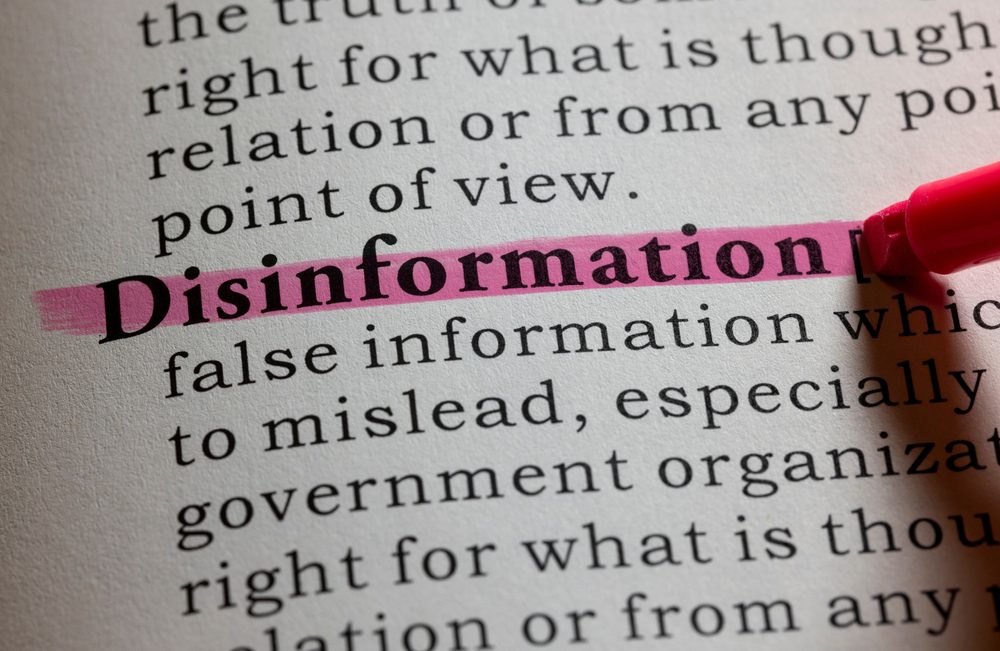
The Flemish government is allotting over €3 million in its fight against ‘disinformation.’ A total of five projects will be subsidized and see media companies, prestigious universities, and research groups enter into joint ventures. Its Minister of Media, Benjamin Dalle, made the announcement last Friday, October 14th.
It is not the first time the Flemish government has embarked upon such an initiative. Only last year, a slice of a €35 million government package, meant to help the media sector transition to digital, went towards anti-disinformation efforts.
Yet these, it would now seem, proved insufficient in the eyes of the government—a ‘gap in the market’ the eight partnerships, which originally applied for a grant, no doubt intuited. After their proposed projects’ assessment by a jury of external experts who offered their advice to Dalle, five of the eight got the go-ahead, to the tune of €3.15 million.
The most expensive and equally high-profile one, ‘First Aid for Doubt,’ sees three universities (Katholieke Universiteit Leuven (KU Leuven), Vrije Universiteit Brussel (VUB), Universiteit Antwerpen (UA), and different editorial departments (VRT, Knack) team up with technology player Textgain and the fact-checking platform deCheckers to bolster Flemish resilience against disinformation.
Overall, the aim of the five projects is to provide more insight into how media users perceive disinformation, how they interact with it, and how editors and journalists can detect and fact-check disinformation faster and more efficiently.
In its statement, the Flemish government warns that “disinformation [which it defines as the deliberate spreading of misinformation] can manipulate and polarize the social debate and undermine citizens’ trust in the media, politics, public institutions, or science.”
“Disinformation is very widespread in our modern society. It is often used with wrong intentions and sometimes even as a weapon of war. The impact on our society is hard to overestimate,” Minister Dalle commented.
“We want to support editors, journalists, and organizations to deal with disinformation more efficiently and react faster in a digital environment where it is becoming easy to spread disinformation by the day. We also want to teach news users to be more resilient in dealing with disinformation,” the CD&V minister concluded.
Griet De Craen, editor-in-chief at the state-funded news organization VRT NWS explains that they “want to map out who those Flemish are who doubt the information they see, for example on their social media, and are thrown off balance as a result.” With the help of academics, they then “want to investigate who those people are, but also what they need to know whether messages they see are correct or not. We want to investigate on which platforms, for example, there is the greatest need for fact checks and in what shape.”
After this mapping out, an army of fact-checkers will be put to work, for instance on TikTok, “where a lot of disinformation is going around and where very few fact checks can be found. We know that there are many young people there who are in doubt because of false messages,” De Craen explained.
As part of these efforts, influencers on social media will be asked to help in combating disinformation on themes such as health or climate [two topics on which the powers that be brook little to no dissent] in “an impactful way.”
Other notable projects are underway to address different categories of media consumers. ‘NieuwsWijsNeuzen!’ is designed for children and will focus on empowering them to recognize disinformation. ‘COM-PRESS’ aims to develop tools whereby journalists can detect and unmask false information. Under ‘Re:plus,’ an AI-driven tool will be developed which teaches users to deal with others’ arguments, as well as fallacies, misinformation, and conspiracy theories.
The intention is to achieve a “less polarizing and more constructive social debate,” De Craen commented.
Others see the initiative quite differently.
Chris Janssens, leader of the right-wing Vlaams Belang party in the Flemish Parliament, has come out against it. He deems it to be “wasteful” in light of the economic pain many Flemish are going through currently.
He also sees a parallel with Turkey, where “recently, a new law against disinformation was introduced to silence critics of the regime,” he explained. “I am not in favor of such ideological tools of the state, the main purpose of which is to combat ‘wrong opinions’ and to ensure that all are merely repeating the regime’s tunes.”
Continuing his critique, he said that it would be “right-wing opinions which would be ‘fact-checked’—in other words: ‘ridiculed’—while left-wing opinions would be given free rein.”
